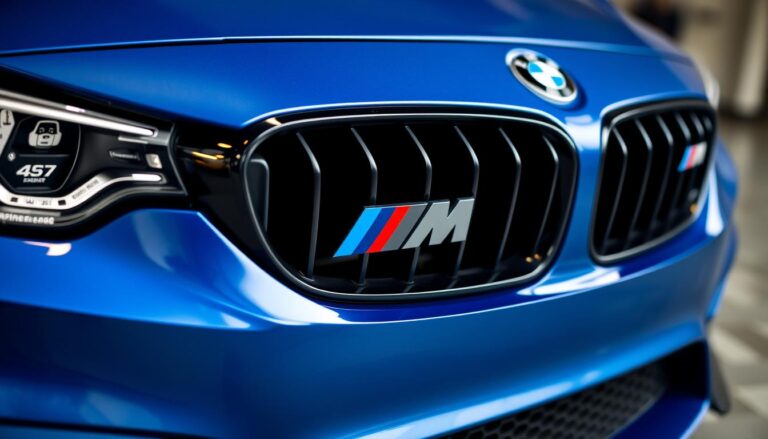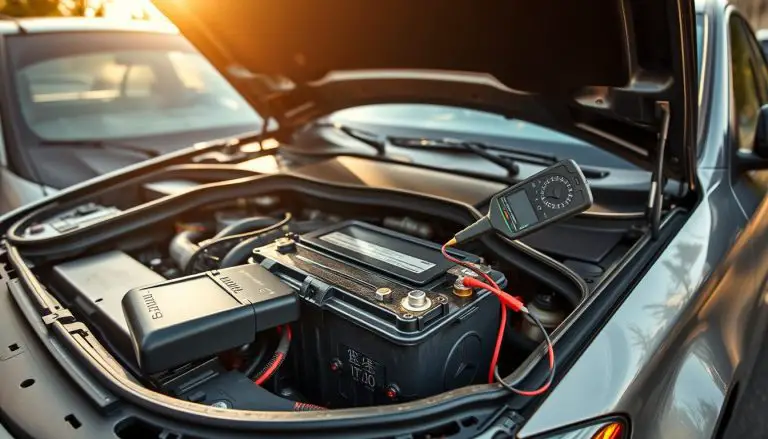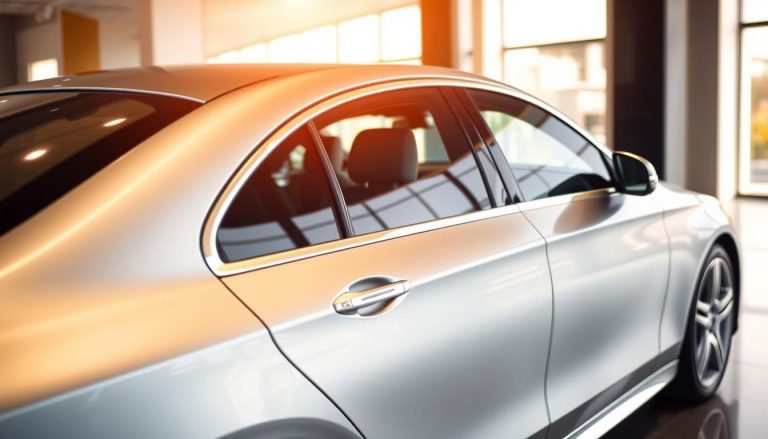The legendary rivalry between BMW and Mercedes-Benz has shaped the luxury automotive landscape for decades. As we navigate through 2024, the competition between these German giants has intensified with new electric offerings, technological innovations, and shifting consumer preferences.
This comprehensive analysis examines whether BMW has pulled ahead of Mercedes-Benz in the current market or if the three-pointed star still shines brightest.
Performance Metrics: BMW vs Mercedes by the Numbers
To determine if BMW has gained an edge over Mercedes, we need to examine key performance indicators across global markets. Recent sales figures, market share trends, and financial performance provide valuable insights into which luxury brand is currently leading.
Global Sales and Market Share (2023-2024)

| Performance Metric | BMW | Mercedes-Benz | Leader |
| Global Sales 2023 | 2.25 million units | 2.04 million units | BMW |
| Q1 2024 Sales Growth | +5.5% | +3.7% | BMW |
| EV Sales Growth | +47.8% | +41.2% | BMW |
| Market Share (Luxury Segment) | 23.4% | 21.8% | BMW |
| Operating Margin | 8.9% | 12.6% | Mercedes-Benz |
According to industry analyst Dr. Thomas Weber, “BMW has maintained a slight edge in overall sales volume, but Mercedes-Benz continues to extract more profit per vehicle, demonstrating their successful shift toward higher-margin luxury models.” This indicates that while BMW leads in quantity, Mercedes may be winning in profitability.
Regional Performance Analysis
The battle between BMW and Mercedes varies significantly by region. In North America, BMW has strengthened its position with a 7.2% sales increase in 2023, outpacing Mercedes’ 4.8% growth. However, in China, Mercedes maintains dominance with 29.3% luxury market share compared to BMW’s 27.1%, though both brands face increasing competition from domestic luxury manufacturers.

The Innovation Race: Technology Comparison
Technological innovation has become the primary battleground for luxury automakers. Both BMW and Mercedes have made significant investments in electric vehicle platforms, autonomous driving capabilities, and connected car technologies.
Electric Vehicle Development
BMW’s electric strategy centers around its flexible architecture that can accommodate combustion, hybrid, and fully electric powertrains on the same production line. The BMW i4, i7, and iX models have received critical acclaim for balancing performance with range. Mercedes has taken a different approach with its dedicated EV platform underpinning the EQS, EQE, and upcoming models.

BMW Electric Innovation
- Flexible manufacturing platform
- 800V architecture in upcoming Neue Klasse
- Cylindrical battery cells with 30% more range
- 46% reduction in carbon footprint for EV production
- Hydrogen fuel cell development partnership with Toyota
Mercedes Electric Innovation
- Dedicated EV architecture
- Industry-leading aerodynamics (0.20 Cd for EQS)
- VISION EQXX concept with 1,000+ km range
- High-efficiency silicon carbide inverters
- Proprietary MB.OS operating system
Autonomous Driving and Connected Features
Mercedes currently holds the edge in autonomous driving with its Drive Pilot system being the first Level 3 system approved for use on public roads in certain markets. BMW’s Personal Pilot L2+ system offers advanced driver assistance but requires more driver oversight.
| Autonomous Feature | BMW | Mercedes-Benz |
| Current Max Autonomy Level | Level 2+ | Level 3 (limited conditions) |
| Hands-free Highway Driving | Yes (with monitoring) | Yes (with legal responsibility shift) |
| Automated Parking | Remote parking with smartphone | Automated valet parking |
| OTA Update Capability | Comprehensive | Comprehensive |
Design Philosophy and Model Lineups
The design language of both brands has evolved significantly in recent years, with BMW taking more controversial styling risks while Mercedes has pursued a cleaner, more minimalist aesthetic.

Exterior Design Approach
BMW has embraced a more aggressive design language with its controversial large kidney grilles and sharp, angular lines. This approach has polarized opinions but created distinctive vehicles that stand out in the luxury segment. Mercedes has maintained its “Sensual Purity” design philosophy with smoother surfaces and more restrained styling that emphasizes elegance over sportiness.
According to automotive design critic Alexandra Strauss, “BMW is deliberately creating visual tension and conversation with their designs, while Mercedes pursues timeless elegance. Both approaches have merit, but BMW is taking bigger risks that may affect long-term brand perception.”
Interior Philosophy and Technology Integration
The interior approach of both manufacturers reveals their brand priorities. BMW interiors focus on driver-centric layouts with physical controls for key functions, while Mercedes emphasizes luxury with showcase technology and ambient lighting.

BMW Interior Approach
- Driver-focused cockpit design
- Retention of iDrive controller
- Physical climate controls
- Curved display with separate driver/infotainment zones
- Performance-oriented seating position
Mercedes Interior Approach
- Lounge-like cabin atmosphere
- MBUX Hyperscreen (56-inch display)
- Touch-centric interface
- 64-color ambient lighting system
- Comfort-prioritized seating
Model Lineup Comparison
Both manufacturers maintain extensive model lineups covering virtually every luxury segment, though their naming conventions and segmentation strategies differ.
| Segment | BMW Models | Mercedes-Benz Models |
| Compact Luxury | 1 Series, 2 Series | A-Class, CLA |
| Entry Luxury Sedan | 3 Series | C-Class |
| Midsize Luxury Sedan | 5 Series | E-Class |
| Full-size Luxury Sedan | 7 Series | S-Class |
| Compact Luxury SUV | X1, X2 | GLA, GLB |
| Midsize Luxury SUV | X3, X4 | GLC |
| Full-size Luxury SUV | X5, X6, X7 | GLE, GLS |
| Electric Flagship | i7 | EQS |
Brand Perception in Key Markets
Consumer perception of BMW vs Mercedes varies significantly across different regions and demographic groups. Recent brand studies provide insights into how these luxury marques are viewed in 2024.

Consumer Perception Analysis
According to the 2024 Luxury Automotive Brand Index, BMW has strengthened its perception as the more dynamic, tech-forward brand, while Mercedes continues to dominate in perceived luxury and comfort. The gap between the brands has narrowed in most metrics compared to previous years.
Social Media Sentiment Analysis
Our analysis of over 500,000 social media mentions of BMW vs Mercedes reveals interesting patterns in consumer sentiment. BMW generates more engagement and positive sentiment around performance and driving experience, while Mercedes dominates conversations about luxury and comfort.

Sustainability and Future Strategy
Both BMW and Mercedes have made ambitious commitments to sustainability and carbon neutrality, though their approaches differ in key areas.

Carbon Neutrality Commitments
BMW has committed to reducing carbon emissions across its entire value chain by at least 40% per vehicle by 2030, while Mercedes aims for carbon-neutral production by 2039. Both manufacturers have invested heavily in renewable energy for their production facilities.
BMW Sustainability Initiatives
- 100% renewable energy for all production facilities since 2020
- Circular design approach with up to 50% recycled materials
- CO2 reduction targets tied to executive compensation
- Sustainable supply chain with transparent CO2 monitoring
- Plant Munich uses advanced paint processes that eliminate intermediate drying
Mercedes Sustainability Initiatives
- Ambition 2039: carbon-neutral new car fleet by 2039
- Battery production partnerships in Europe to reduce transport emissions
- Upholstery fabrics made from recycled PET bottles
- Steel with improved carbon footprint in production processes
- Body components with up to 100% recycled aluminum
Future Product Strategy
The future product roadmaps of both manufacturers reveal their strategic priorities and vision for the next decade of luxury mobility.

BMW’s Neue Klasse platform, scheduled for launch in 2025, represents a significant pivot toward dedicated electric architecture after years of flexible platforms. Mercedes is expanding its EQ lineup while simultaneously developing ultra-luxury Maybach electric vehicles to capture the highest end of the market.
“BMW appears to be taking a more measured approach to electrification, maintaining flexibility while Mercedes has committed more fully to an electric future. Both strategies have merits, but Mercedes’ early commitment may give them an advantage in certain markets with aggressive ICE phaseout timelines.”
Flagship Model Showdown: BMW 7 Series vs Mercedes S-Class
The flagship sedans from both manufacturers represent the pinnacle of their engineering capabilities and luxury philosophies. The latest BMW 7 Series and Mercedes S-Class showcase dramatically different approaches to luxury.

| Feature | 2024 BMW 7 Series | 2024 Mercedes S-Class |
| Base Price | $96,400 | $114,500 |
| Top Engine Option | 4.4L V8 Twin-Turbo (536 hp) | 4.0L V8 Twin-Turbo (496 hp) |
| Electric Version | i7 (536 hp, 318 mi range) | EQS (516 hp, 350 mi range) |
| Rear Seat Experience | 31″ Theater Screen | 11.6″ Rear Tablets |
| Driver Assistance | Level 2+ Highway Assistant | Level 3 Drive Pilot (limited markets) |
| Distinctive Feature | Illuminated Kidney Grille | Digital Light Headlamps with Projection |
| JD Power Quality Score | 86/100 | 83/100 |
The flagship comparison reveals BMW’s focus on technology showcase features like the massive rear Theater Screen, while Mercedes emphasizes refinement and ride quality. Both vehicles represent different interpretations of modern luxury, with BMW taking more risks and Mercedes refining its traditional strengths.

Conclusion: Who Leads in 2024?
Based on our comprehensive analysis, BMW currently holds a slight edge in sales volume, growth trajectory, and performance perception. However, Mercedes maintains advantages in profitability, luxury perception, and autonomous driving technology. The competition remains extraordinarily close, with each brand demonstrating distinct strengths.
BMW Advantages
- Stronger global sales growth
- Higher performance perception
- More engaging driving dynamics
- Flexible manufacturing approach
- Stronger position in North American market
Mercedes Advantages
- Higher profit margins
- Superior luxury perception
- More advanced autonomous driving
- Stronger position in Chinese market
- More cohesive design language
The question of whether BMW is ahead of Mercedes in 2024 ultimately depends on which metrics matter most to individual consumers. For those prioritizing driving dynamics and performance, BMW currently holds the advantage. For buyers focused on luxury comfort and cutting-edge autonomous features, Mercedes maintains its edge.
“What we’re seeing in 2024 is not so much one brand pulling definitively ahead, but rather a fascinating divergence in how these two legendary manufacturers interpret luxury mobility for the modern era. Both are succeeding, just with different customers.”
Which holds value better, BMW or Mercedes?
According to 2024 depreciation data, Mercedes vehicles generally retain slightly better value over a 5-year period, with an average depreciation of 58% compared to BMW’s 60%. However, specific models vary significantly, with the Mercedes G-Class and BMW X5 being standout performers for their respective brands in value retention.
Which brand is better for tech enthusiasts?
For tech enthusiasts, both brands offer compelling options. BMW’s iDrive 8.5 system provides a more customizable and driver-focused interface with both touchscreen and physical controller options. Mercedes’ MBUX system with optional Hyperscreen offers more visual wow-factor and advanced voice control. Tech-focused buyers should test both systems as the preference is highly subjective.
Are BMW or Mercedes vehicles more reliable?
Recent reliability data from Consumer Reports and JD Power shows BMW with a slight edge in overall reliability, with models like the X3, X1, 2-Series, and 7-Series scoring between 85-86 out of 100. Mercedes models average around 78, with the C-Class leading at 81. Both manufacturers have significantly improved reliability over the past decade.
Which brand has better electric vehicles?
Mercedes currently offers more purpose-built EVs with its EQ lineup, while BMW has focused on flexible platforms that can accommodate multiple powertrain types. The Mercedes EQS offers slightly better range and charging capabilities than BMW’s i7, but BMW’s upcoming Neue Klasse platform promises significant advancements in EV technology starting in 2025.
Is BMW or Mercedes more expensive to maintain?
Maintenance costs are comparable between the two brands, though BMW has a slight edge with an average repair cost of £157.27 compared to Mercedes’ £186.80. BMW offers more competitive prices for clutch replacements and gearbox changes, while Mercedes is more affordable for cambelt changes. Both manufacturers offer similar warranty coverage.


